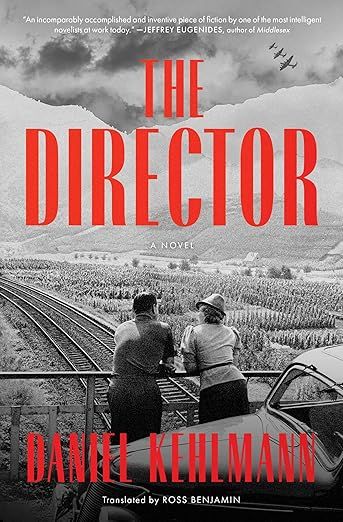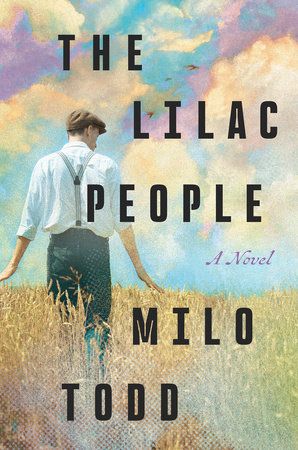I love when history, literature, and historical literature come together in real life. All three are at the center of a new oral history project being produced with a grant from the U.K.’s Arts and Humanities Research Council. The book, which was banned within months of its publication, also reflects current issues surrounding censorship. Considering the fact that we’re seeing record numbers of book challenges in the United States (according to data collected by the American Library Association) and campaigns that target LGBTQ and BIPOC books to an outsized degree, it seems like a good time to reflect on the history of banning books about marginalized identities. It was happening one hundred years ago in England, and it’s happening in America today.
That’s not the only way today’s big historical fiction news stories connect the past to the present, though. Austrian author Daniel Kehlmann discusses the troubling inspiration for his newest book about a Nazi-era filmmaker, and Milo Todd, a writer, editor, and educator, traces the history of trans erasure from Nazi Germany to the present day United States. This one gets heavy, folks, but it’s important. Give it a read, check out the original articles, and remember to support the authors making sure history is remembered.
International Project To Recover Hidden History of Once-Banned LGBTQ Book
The Well of Loneliness, written by British author Radclyffe Hall, was published in 1928. By November of that same year, it was banned for obscenity and its publisher charged under the Obscene Publications Act of 1857. One newspaper called it “a book that must be suppressed.” It wouldn’t be published in England again until 1949.
The book has plenty of issues from a modern-day lens, from shocking caricatures of gay men to rampant misogyny, racism, and classism. It might be hard to believe that this book was once considered radical. Not to mention, BBC writer Hephzibah Anderson described it as “simply not great literature.”
Nonetheless, the book resonated with generations of readers, who perhaps hadn’t seen themselves represented in words, much less literature, before. The banning of the book had possibly an equally great impact. Only decades before its publication, the Obscene Publications Act had opted not to include lesbianism in its definition of obscenity, fearing it might promote the practice. Now, the government had banned a book about that very thing, showing that “lesbianism matters so much that the government can ban us and silence us, and that works very well to put you on the cultural map.” That, according to Professor Laura Doan, who co-edited a book on the subject: Palatable Poison: Critical Perspectives on The Well of Loneliness.
But now a grant from the Arts and Humanities Research Council in Britain is giving the classic novel—and its role in LGBTQ history—new life. Over the next five years, 100 Years of The Well of Loneliness, a collaboration between the Universities of Exeter, York, Loughborough, and Cardiff Metropolitan in the U.K., The National Archives, and the Harry Ransom Center in Austin, Texas, will put together an oral history of Hall’s infamous book. Through interviews, a new short film from the award-winning filmmaker Campbell X, and various workshops and events, the project plans to trace the history of the book’s publication, banning, and historical and modern impact.
Historical Fiction About Nazi-Era Filmmaker Depicts Eerie Echoes To Today

Daniel Kehlmann, the son of a Jewish man who grew up in Vienna during the rise of the Third Reich, found the spark of inspiration for his new historical fiction novel, The Director, during the first Trump administration. Kehlmann noticed how carefully people were choosing their words, careful of what they said and who they said it to, in a way that echoed stories he remembered his father told him about self-censorship during the Nazi regime.
The novel follows the largely forgotten story of Austrian filmmaker G.W. Pabst, who gained fame during Hollywood’s silent film era, only to be trapped in war-torn Europe on a trip home to visit his mother.
Kehlmann researched Pabst’s life, trying to understand how a once left-leaning director who helped turn Greta Garbo into an icon came to work for the German propaganda machine that utilized slave labor from the nearby concentration camps. (The German film industry was overseen by Nazi propaganda minister Joseph Goebbels, and the studios in Berlin and Prague were surrounded by barracks of prisoners.)
It’s hard to imagine something more timely, especially from an author with Austrian roots who might face repercussions for speaking out. Kahlmann ended the interview with these words that should shock and horrify anyone who reads them:
“For us visa- and green-card holders, free speech is already practically suspended. Lawyers are advising us to not go to demonstrations, and the media is telling us to delete all messages not favorable to Trump from our phones before we try to enter the U.S., otherwise we might be turned back or even disappear into detention.
“Immediately I’m thinking, can it be bad for me to say something like this to The New York Times? Which, I think, proves my point.”
Author of The Lilac People Traces the Erasure of Trans People from Nazi Germany to Today

Milo Todd’s recent historical fiction novel, The Lilac People, is a story of trans—and queer—existence and resistance under the Nazis during WWII. The book was picked up by Counterpoint Press in January 2024. Then the 2024 election happened, and Todd watched as history seemed set to repeat itself. Once again, trans people were being targeted. Once again, trans people found their very personhood under attack.
Over on LitHub, Todd talks about the importance of writing about history and the erasure of trans people—especially in a time when the truth seems to be increasingly under attack.
If you found these interviews and news articles interesting, you might also want to catch up on some of Book Riot’s recent censorship coverage.









